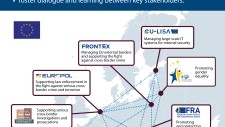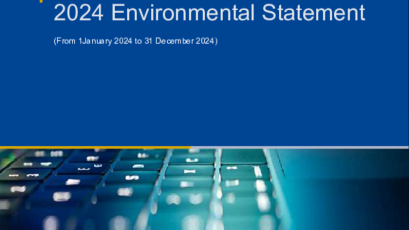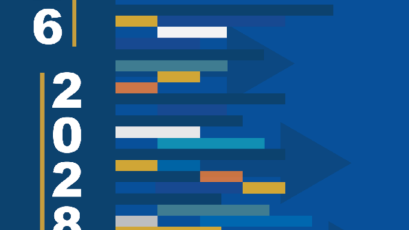Actions

The EU Justice and Home Affairs Agencies' Network (JHAAN) has released the second update of the joint paper on the COVID-19 response. This newest update contains further details on the individual and joint efforts by the nine EU Agencies active in the field of freedom, security and justice to deal with the impact of COVID-19.
Since the beginning of the pandemic in 2020, the EU JHA agencies (CEPOL, EIGE, EMCDDA, EUAA, eu-LISA, Eurojust, Europol, FRA and Frontex) provided continuous support to the Member States and EU institutions in meeting the unprecedented challenges resulting from the outbreak of the virus - each agency within the scope of its mandate and its respective area of expertise.
During 2020, the JHA agencies took all the necessary measures to ensure business continuity and uninterrupted operational support. At the same time, the Justice and Home Affairs Agencies' Network, under the presidency of Eurojust, initiated a mutual dialogue to share the agencies' experiences in dealing with the pandemic and consider new avenues for closer cooperation amongst the agencies and with key stakeholders inside and outside the EU.
On 15 July 2020, the first Joint Paper on the COVID-19 response by the JHA agencies was released, capturing the agencies' individual and joint efforts to deal with the impact of the pandemic. As the pandemic continued to run its course throughout 2020, the first update of the joint paper covering the period of January-December was published in January 2021.
The updated paper published today summarises the main actions taken by Justice and Home Affairs (JHA) agencies between January 2020 and April 2022.
About the Justice and Home Affairs Agencies' Network
The JHAAN connects nine EU Agencies active in the field of freedom, security and justice. Together, the agencies contribute to the implementation of the EU's objectives on migration, asylum and external border management, the fight against organised crime, drug trafficking and terrorism, gender equality and respect for fundamental rights. They also facilitate the functioning of EU IT systems, contribute to EU activities on drugs and drug addiction and deliver law-enforcement training.


